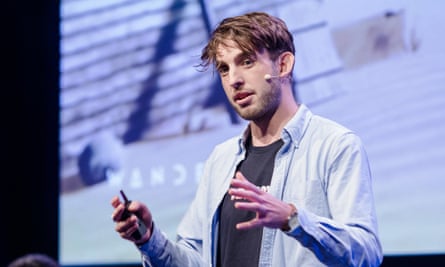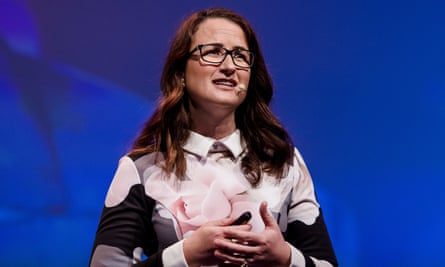At the end of 2017, an unusual job advertisement appeared in New Zealand. Responsibilities included planning for future workforce needs, responding to “emerging and disruptive technologies” and improving digital access. The salary was $400,000.
The advert wasn’t placed by a Silicon Valley tech giant, but the government seeking the nation’s first ever “chief technology officer”.
Tellingly, 60 people applied for the job, but none had the “international mana” – or power – the government was looking for. The advert was reissued and tweaked to make it more appealing to overseas candidates.
The lack of international interest in New Zealand as a hub of emerging technologies is something Jacinda Ardern hopes to change. The prime minister wants to transform sleepy, agrarian New Zealand into a nation that is “leading change at the edge of the world”, a place where “pioneers push boundaries to create models for the rest of the world to follow”.
The creation of the CTO role and a new “global impact visa” specifically to lure entrepreneurs, investors and tech start-ups are key parts of that push.

“If you want to make a positive global impact,” pleads a video for the government’s global impact visa. “New Zealand wants you.”
Despite employing a mere 120,000 people (23% of whom are women), the tech and innovation sector is already the third-largest contributor to the country’s economy and, by 2025, the government aims to make it the second-largest earner.
Despite the bold talk – including the slogan “this is the place of the possible” – investment still lags astronomically far behind the two biggest earners of agriculture and tourism.
However, that might be about to change. Green MP Gareth Hughes recently told the Spinoff: “There is a limit to how many tourists we can cram into Fiordland with the infrastructure. There is a limit to how many cows we can have in our paddocks, and we are seeing that in the state of our waterways. There is no limit to the export of software, services and intellectual property in creative industries.”
‘Being odd is culturally acceptable’
But drawing talent to the South Pacific nation more than 10,000km (6,000 miles) from Silicon Valley remains difficult. When they do come, tech professionals find themselves in a very small pond, where you might bump into the highest government figures during a stroll down Wellington’s Lambton Quay.
Denise Chapman Weston was lured from the US by the prospect of collaborating with Weta Workshop; the conceptual design and practical effects wing of Peter Jackson’s now famous Weta empire.
One of the first recipients of the new “global impact visas”, Chapman Weston has the suitably Silicon Valley title of “director of imagination” and is a child psychologist and “playologist”.
She says she has been labelled a “brash American” more times than she can remember since arriving, but reminds herself that her job is to lend some of that brashness to Kiwis; whose national character she describes as humble to a fault.
“As an inventor, or a creator you have to be pretty bold; you come in and you have sort of, a tall-poppy way of doing things. But being a tall poppy isn’t a good thing here – they get cut off,” says Chapman Weston.
“But being odd is culturally acceptable in New Zealand, so how do you combine being odd with being more outspoken and assertive and sometimes aggressive about your business needs?”
Two guys in a garage
Three months before the 2016 US elections, New Zealanders Benjamin Markby and Tom Bellamy set up a games studio in suburban Auckland
Green, hungry and with nothing to lose, Markby and Bellamy designed a mobile game tailored for the global market; Jrump, in which players have to build walls for Donald Trump to jump over and make the galaxy “great” again. The game hit the zeitgeist when Trump was elected president, and has been downloaded approximately 650,000 times.
“We went to the International Mobile Gaming Awards, which is kind of like the Oscars of our industry. Candy Crush was there, Pokemon Go was there – and two guys from a garage in New Zealand,” says Markby.
Along with Jackson’s Weta empire, Auckland’s Soul Machines is another New Zealand tech success story, a company that has designed a virtual nervous system to make AI more empathic and relatable, and whose technology is now used by European banks, Sony and IBM Watson.
Shona Grundy, Soul Machines’ director of consumer business development, says although the new government has taken a giant leap forward in prioritising the tech and innovation sector, investors are thin on the ground.

“It is crucial the government focus on this now because they are too late already,” says Grundy. “The government believes that 40% of jobs will go [to AI] within the next ten years. I think its going to be a lot faster than that. I think for the first time they are actually doing the right things, and making the right noises, but they need to move urgently, or New Zealand will get left behind.”
In late May, Wellington hosted Tech Week and it is party time for the nerds. Jessica Manins, the CEO of interactive VR/AR studio Mixt and Tech Week collaborator, is working the crowd. Manins says she has cultivated an American persona in the tech world – a fake confidence that doesn’t come so easily to Kiwis.
Her warm laugh pings around the crowded room experimenting with what comes next; the winter night closing in as they talk earnestly about how to solve the world’s problems from the edge of the world.
“That is the most important thing, how do we create a better future for our people?” says Manins, when asked what differentiates tech and innovation in New Zealand. “We do think global, because we have to. We don’t plan to build something just for the community, because there’s only 4.7 million people.”
